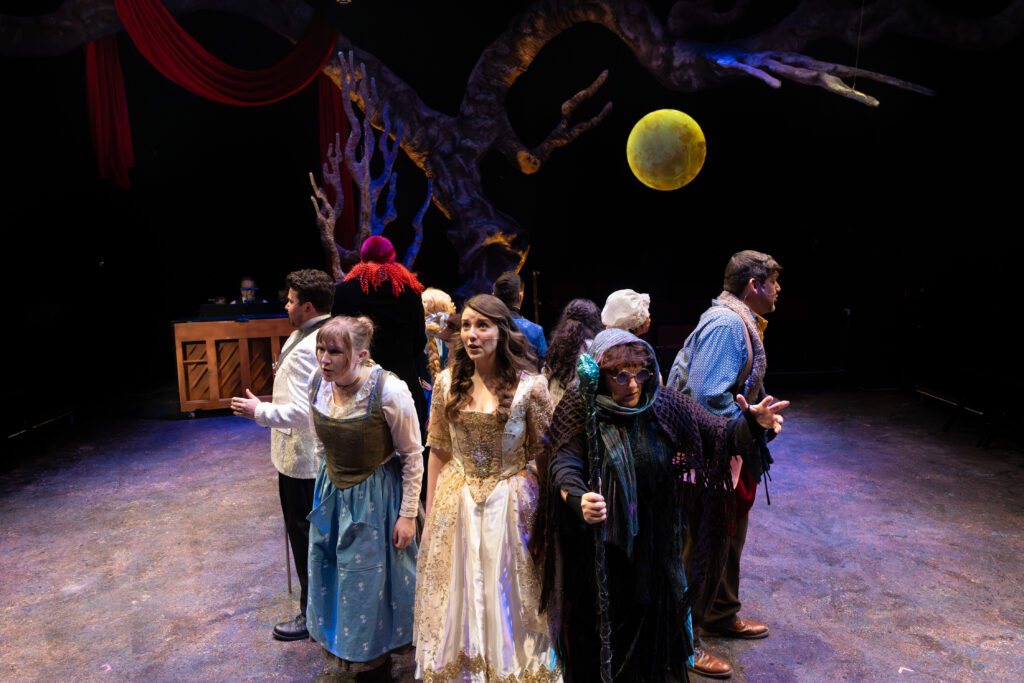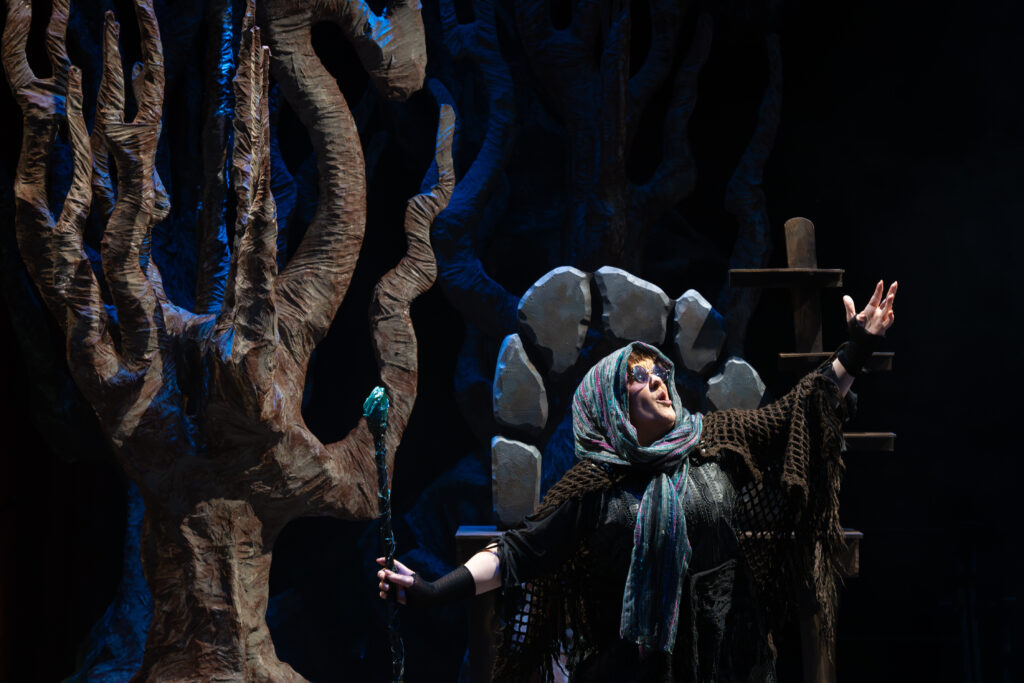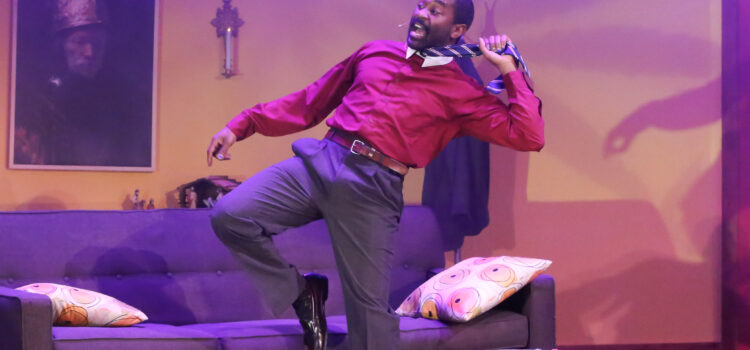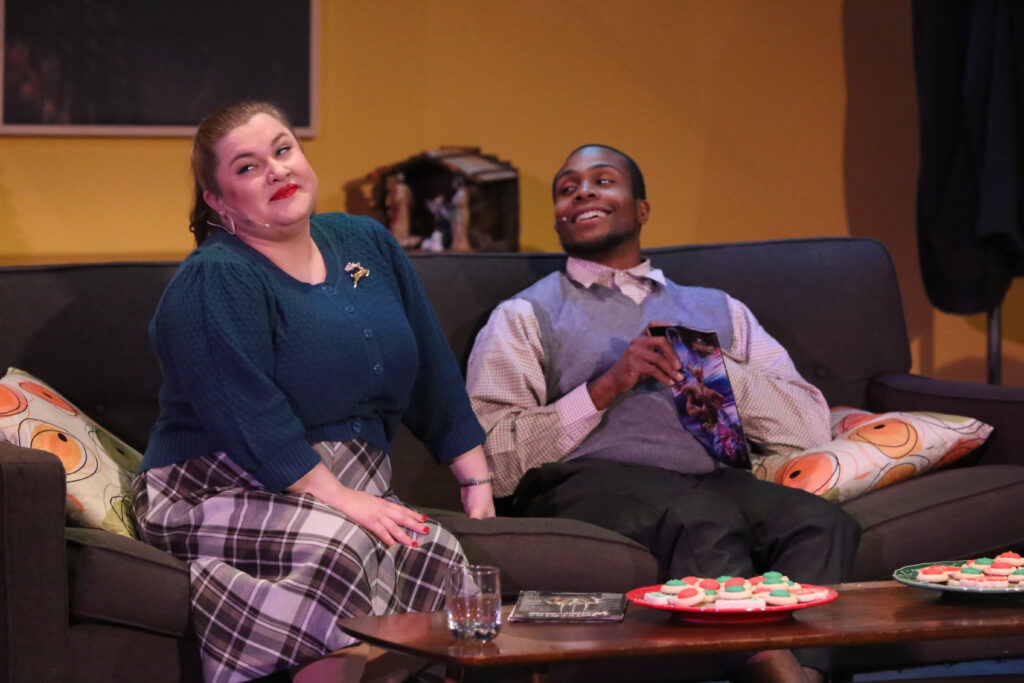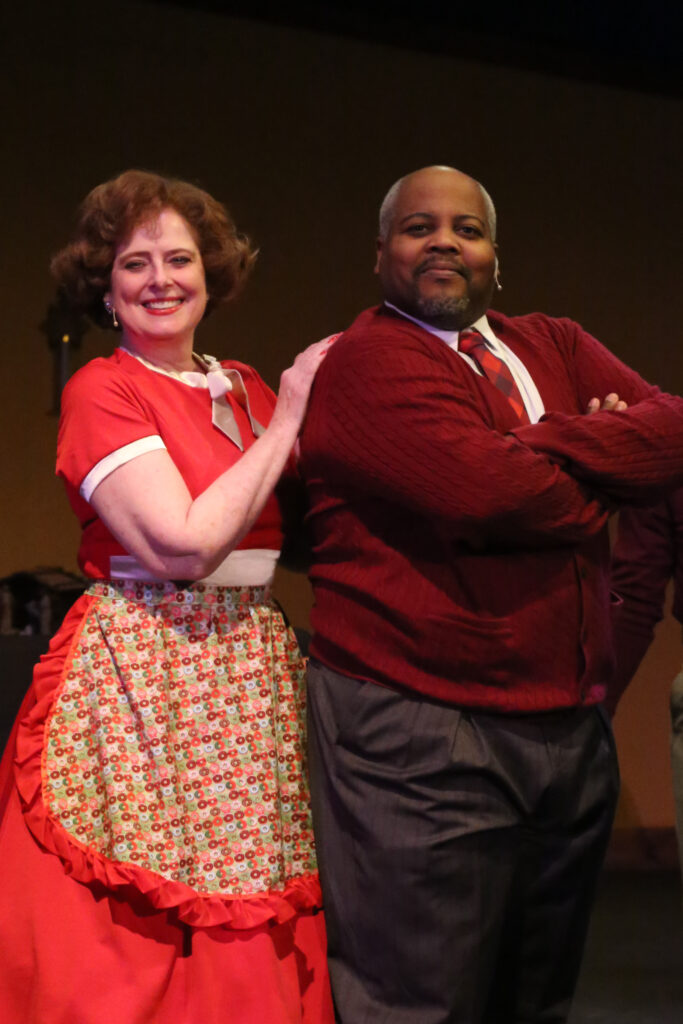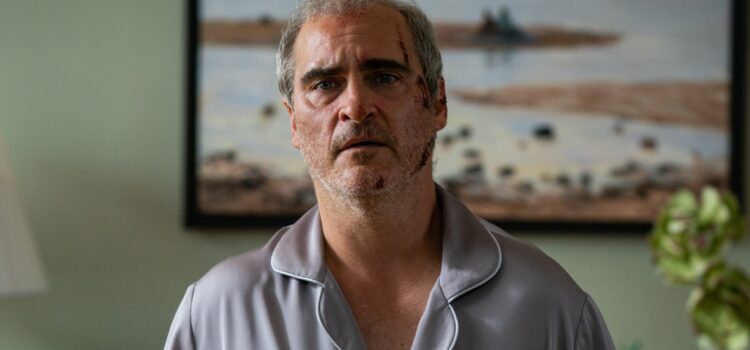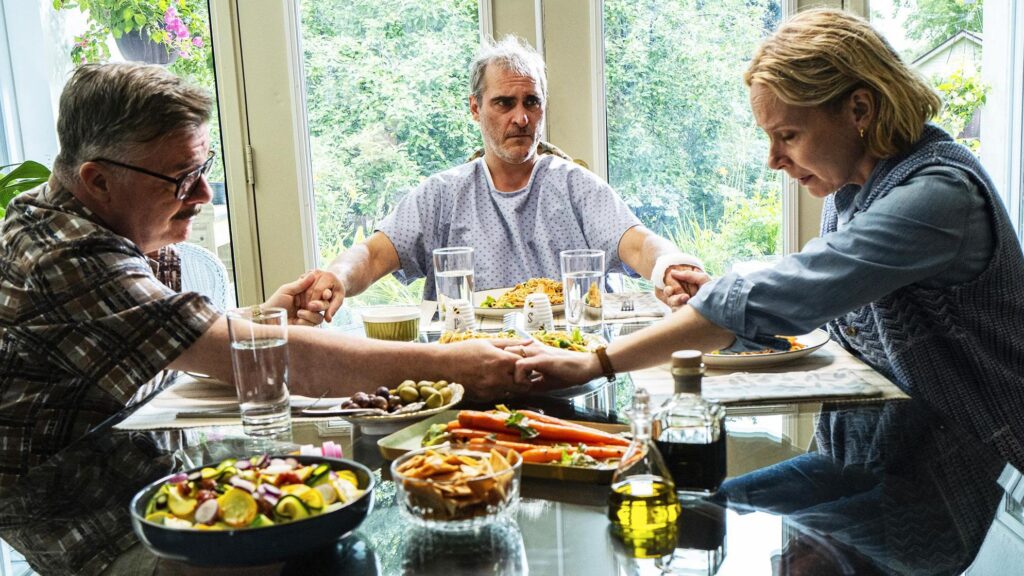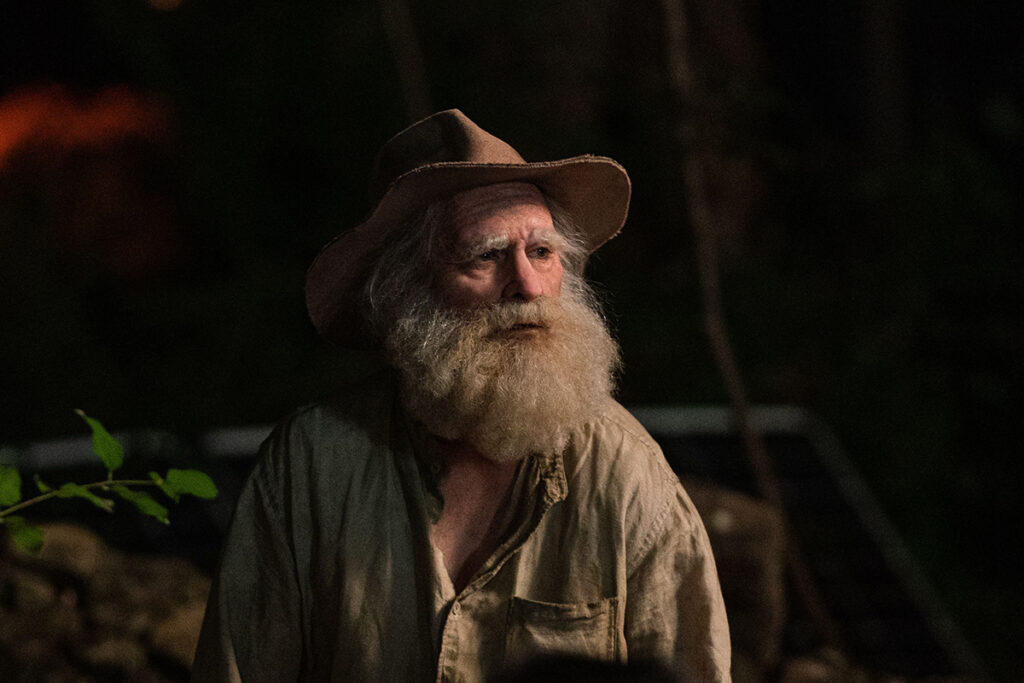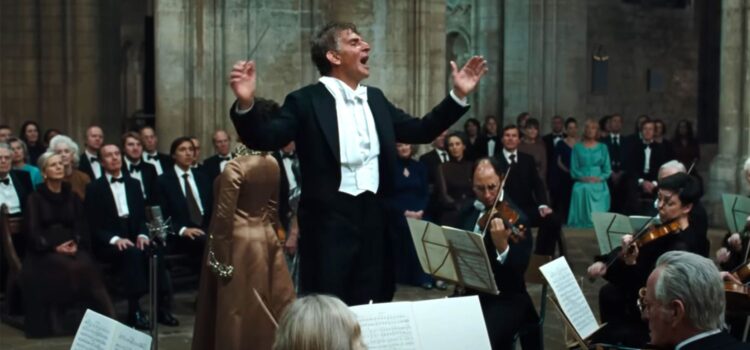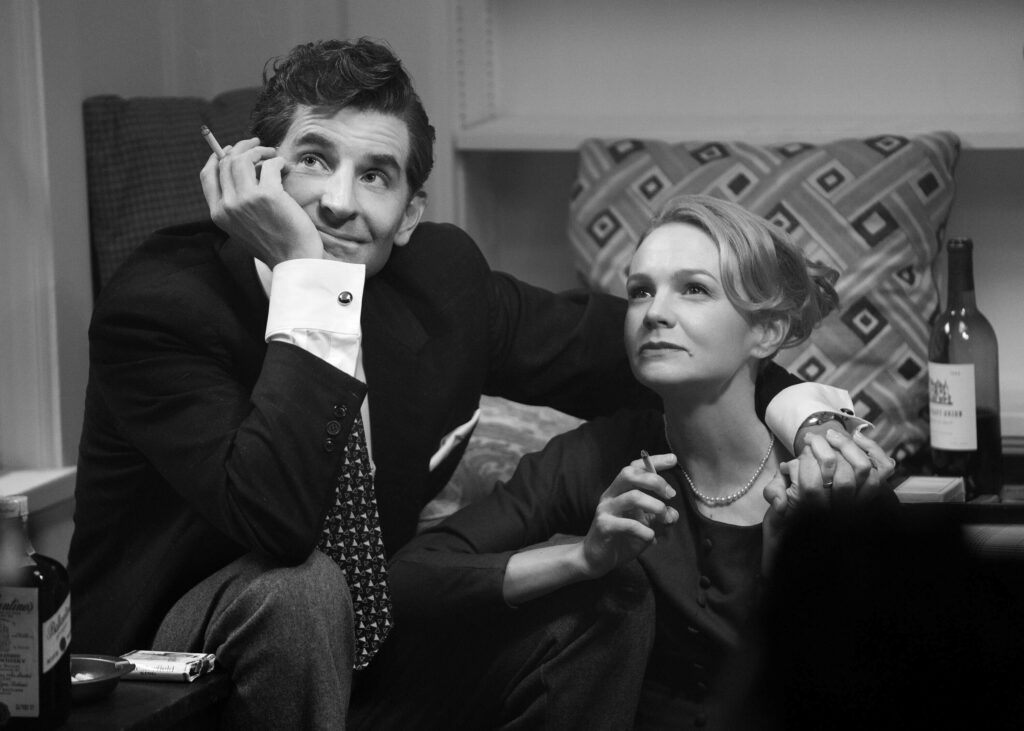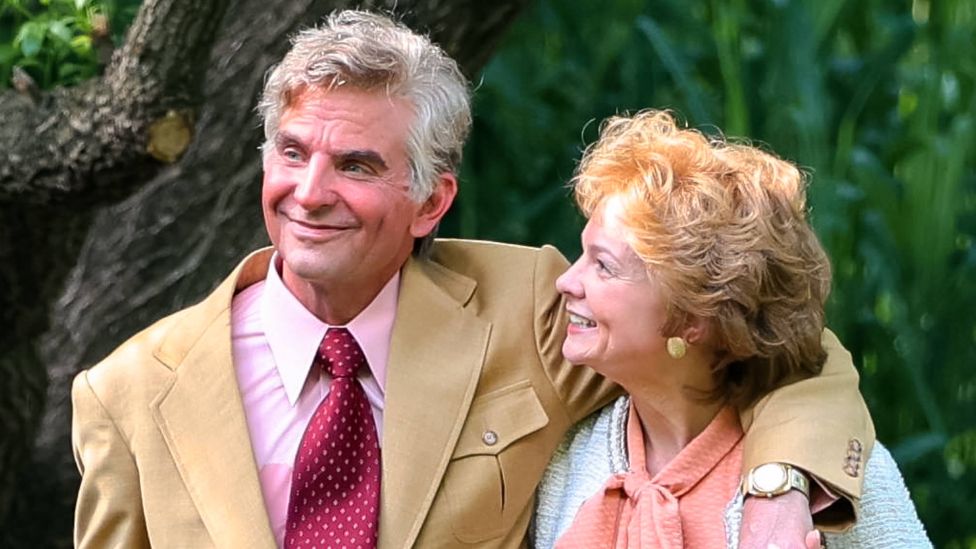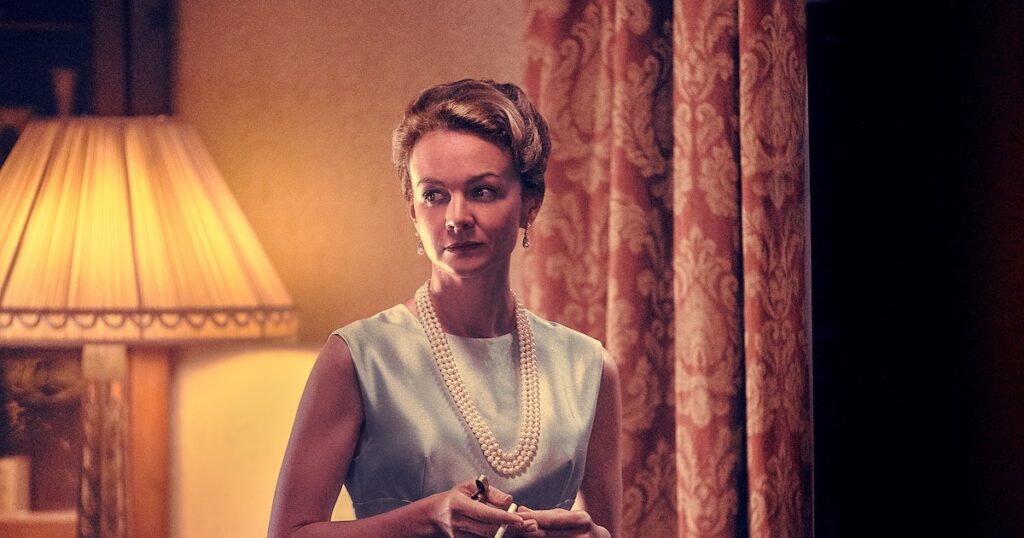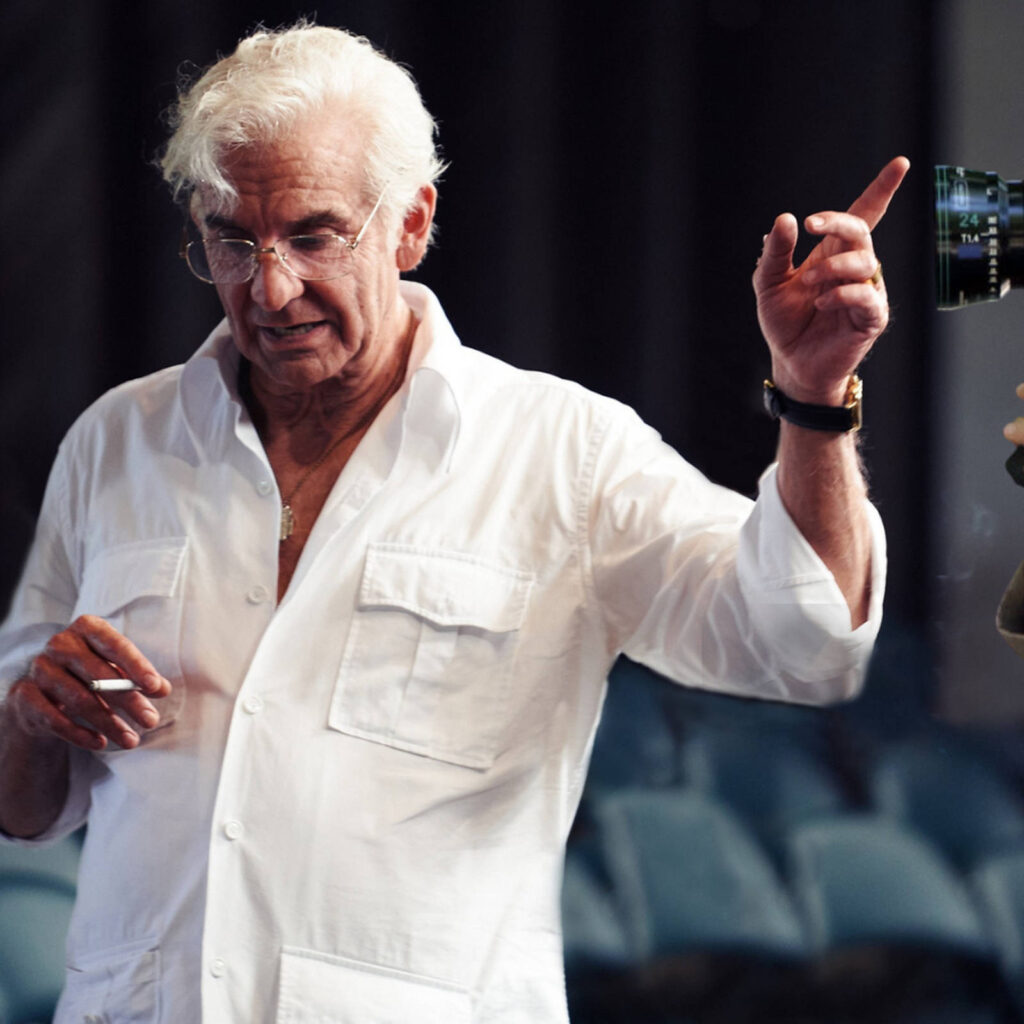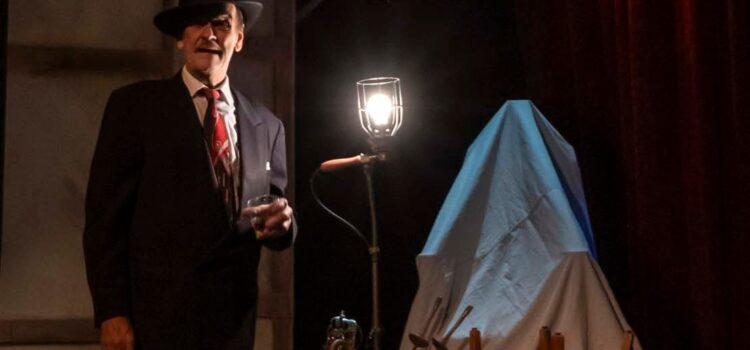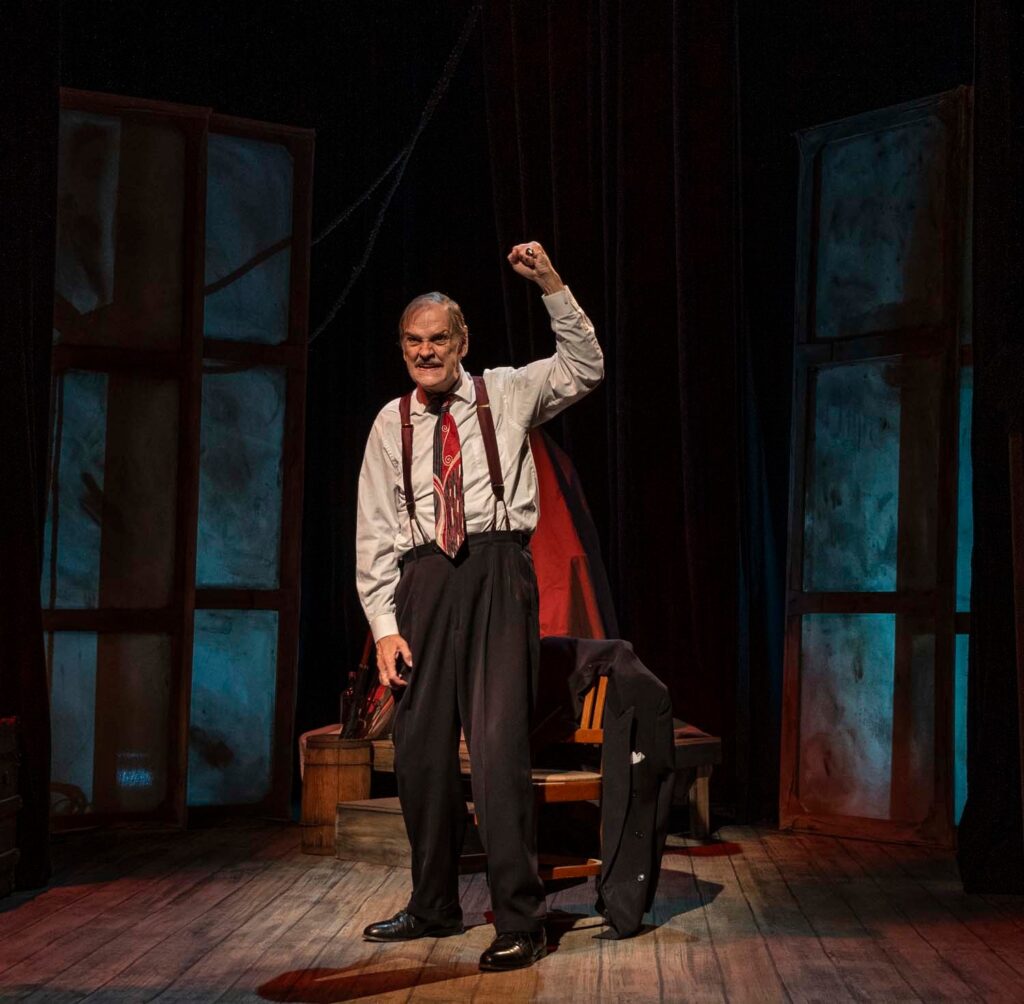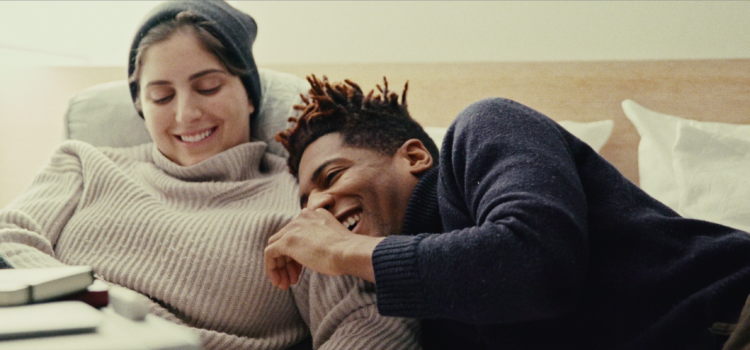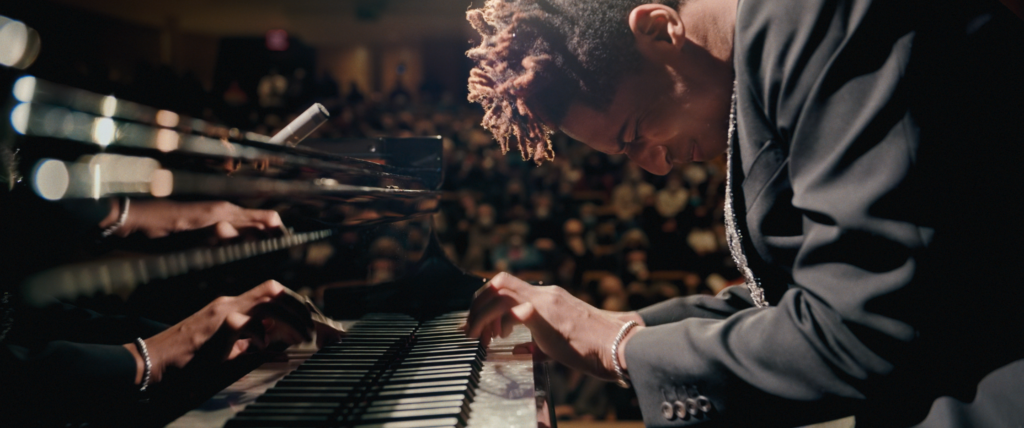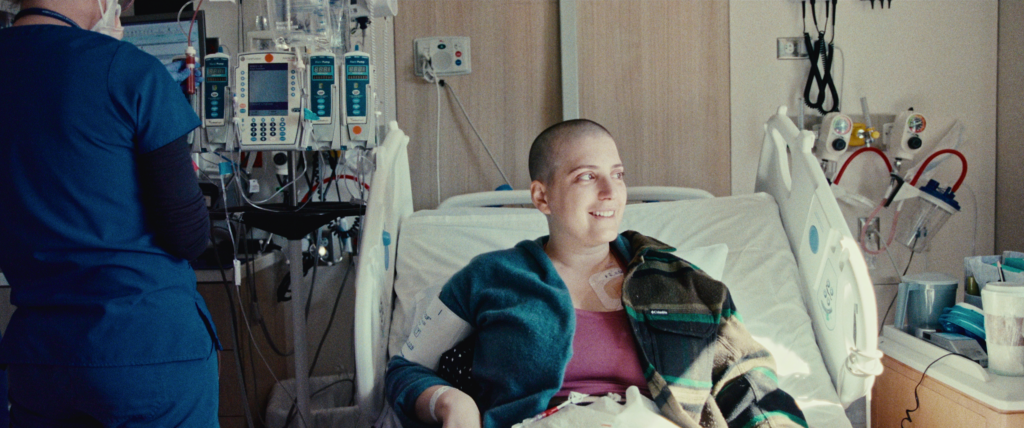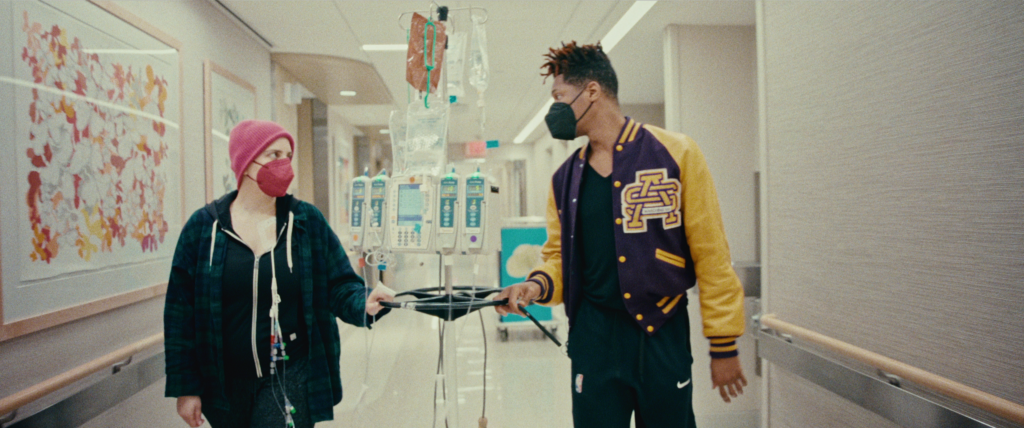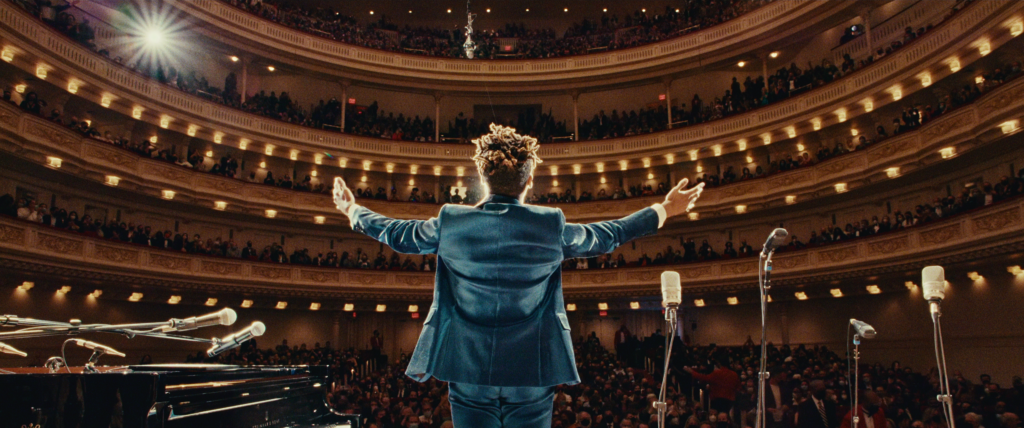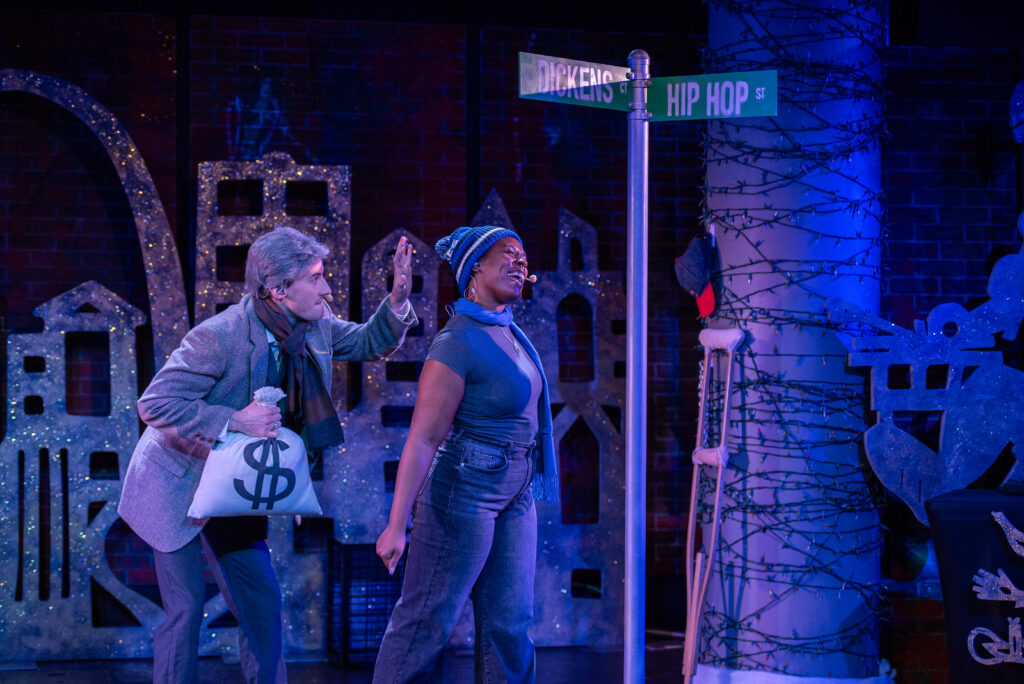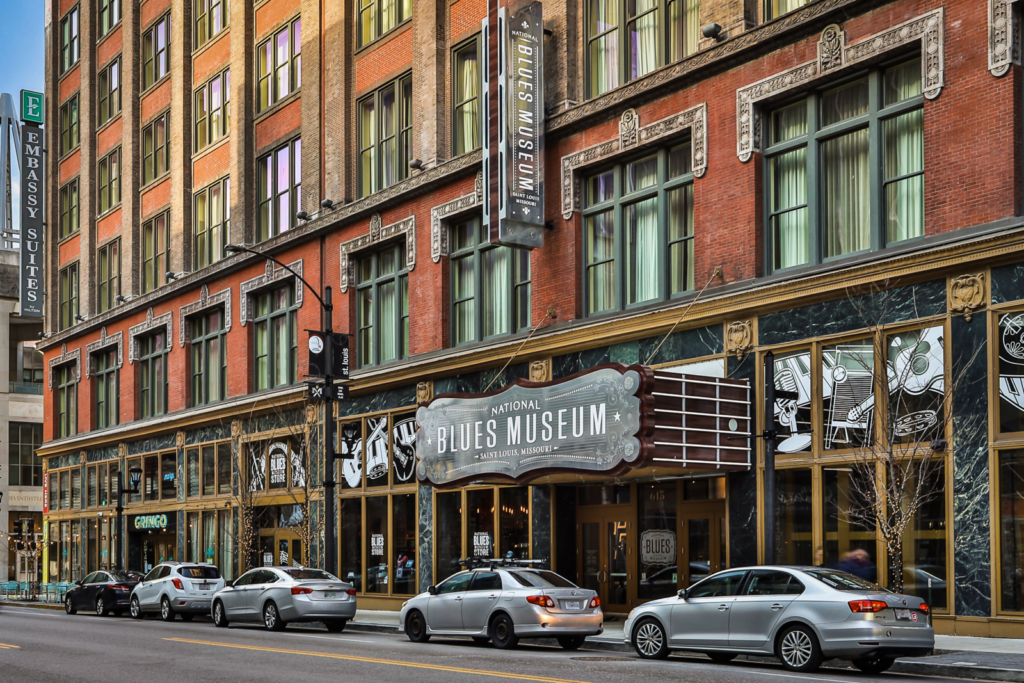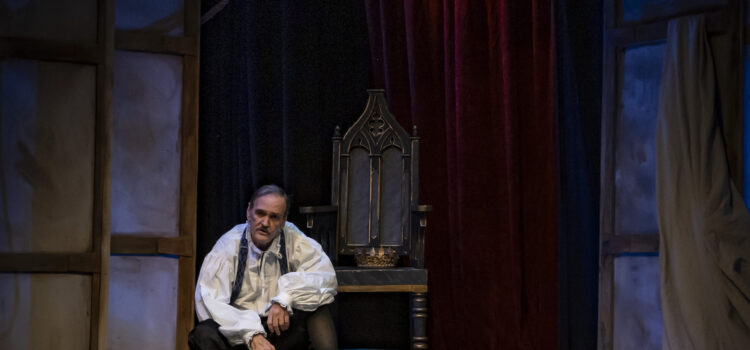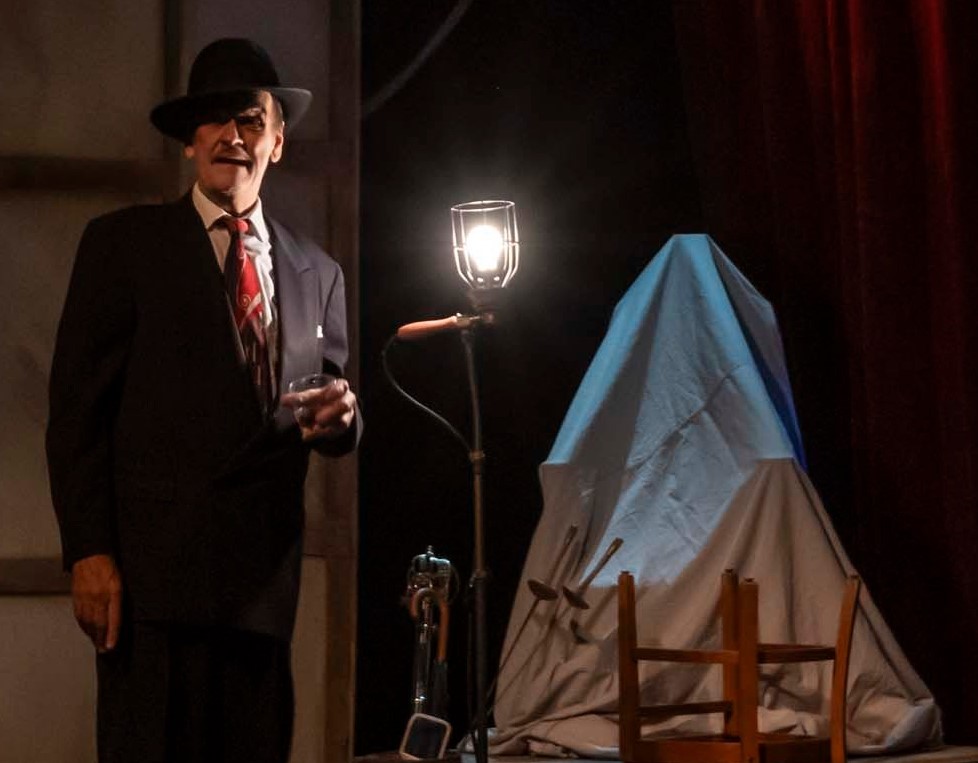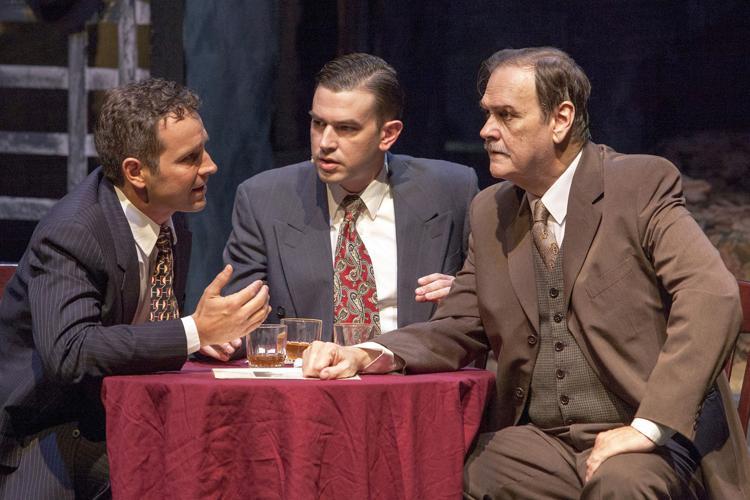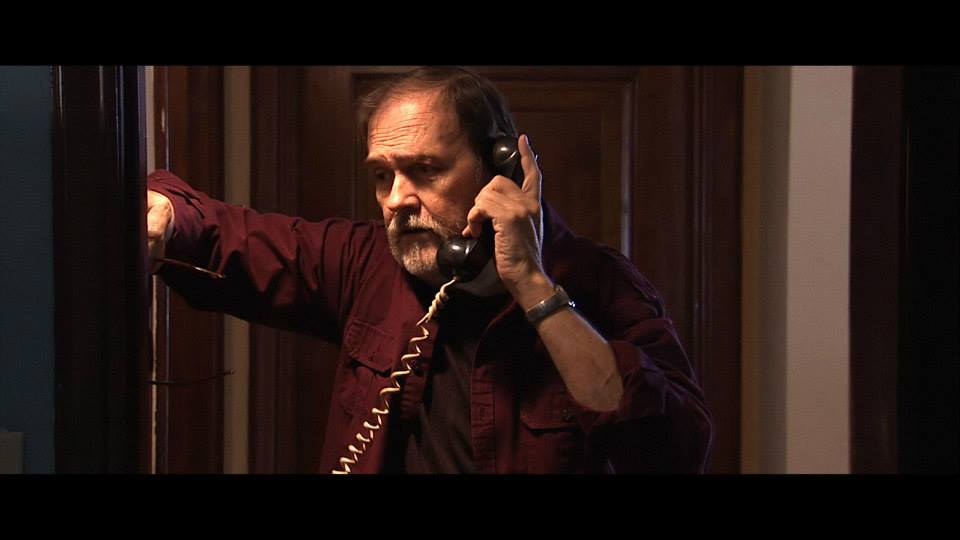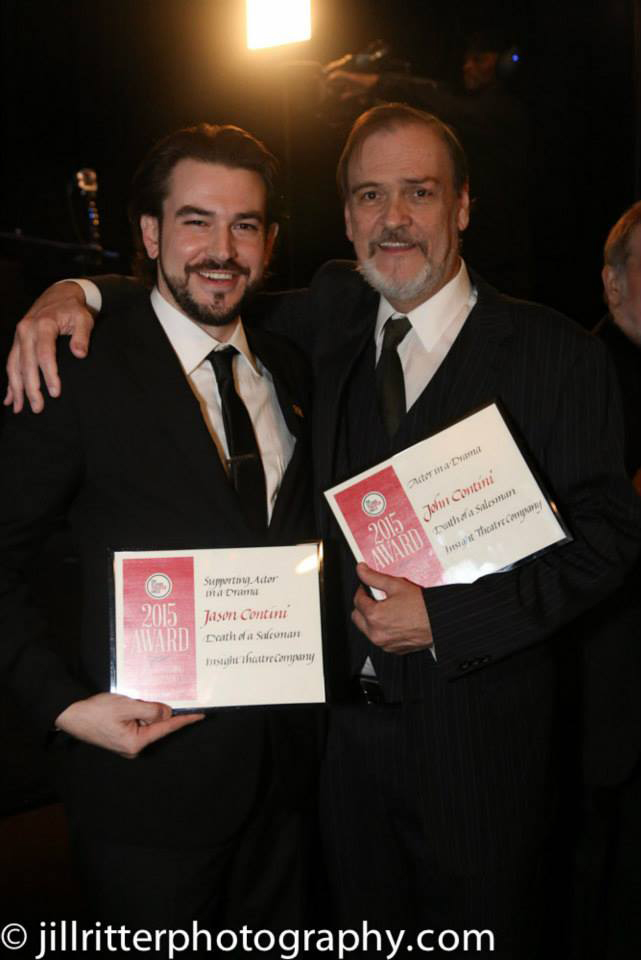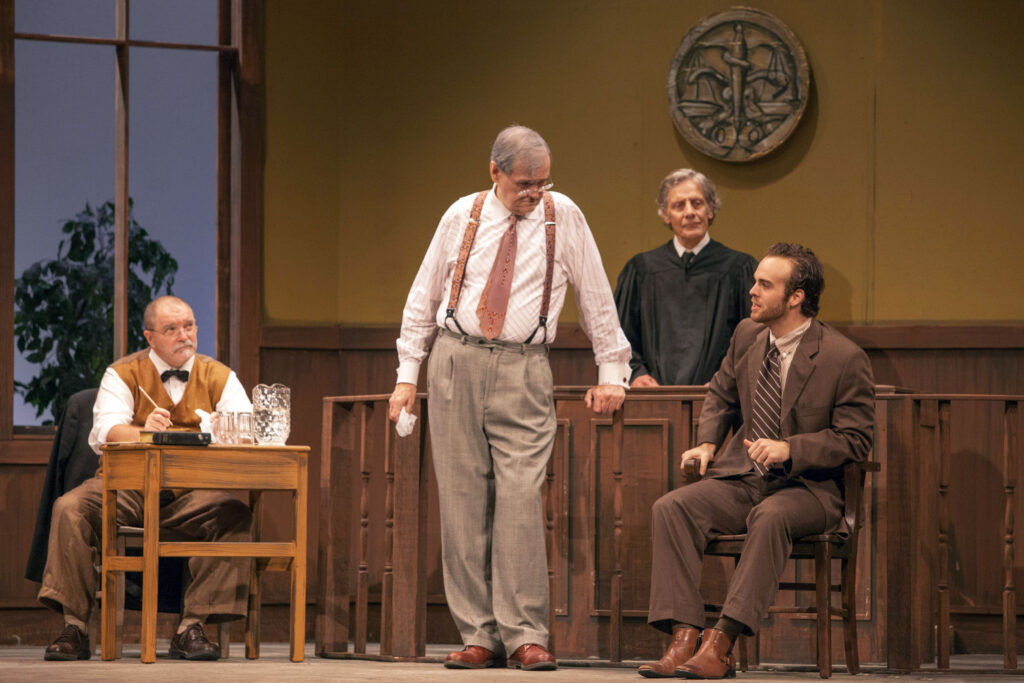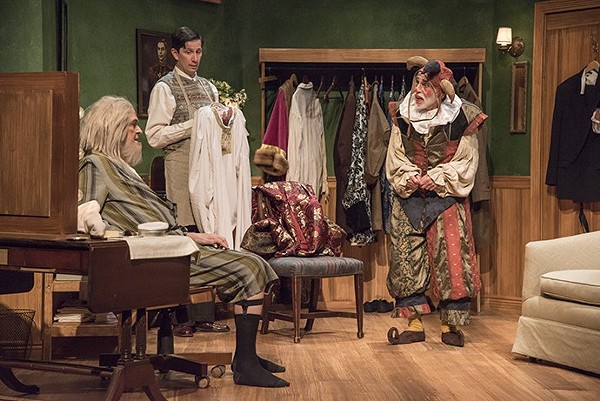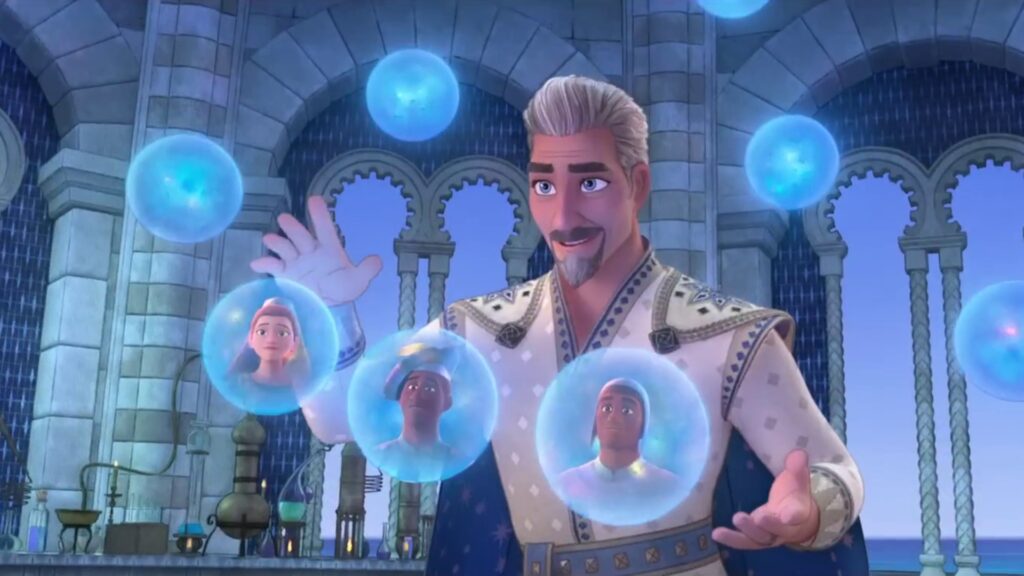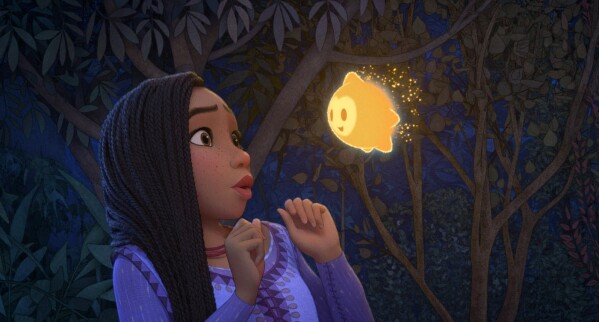By Lynn Venhaus
Rebekah Scallet was eager for new horizons when she moved to St. Louis in 2020. However, a public health emergency upended her plans, and while she waited out a global pandemic in her new home, thinking about a future with no live theatre was terrifying. However, turns out that forced time off was a partial silver lining.
“I had left my former full-time position as Artistic Director for the Arkansas Shakespeare Theatre and moved to St. Louis with my family and without a new job to go to. But in a way, this was the best thing possible for me. I was forced to slow down and admit to myself that I was burned out. I needed a reset and time with my family. And my family needed me for all the virtual school,” she said.
“So, I am grateful for the forced time off, and when the opportunity arose to get back into full time theatre work, I was ready and able to come back with a better perspective on work life balance,” she said.
When named the Artistic Director at the New Jewish Theatre in 2022, she hit the ground running and is now eager to start working on New Jewish Theatre’s 26th year.
Prior to taking over at the J, she worked as a freelance director and teacher, including at the Sargent Conservatory at Webster University where she directed “The Learned Ladies.”
But now, back into full-time theatre work, she is grateful for a fresh perspective. She’s very proud of the efforts that made the 2023 memorable, her first full season, and is gearing up for the 2024 season.
For NJT in 2022, she produced “The Bee Play” after taking the reins previously held by Eddie Coffield. This October, she made her directorial debut at NJT, helming a triumphant “The Immigrant” in October, which had been previously done in 1999 and 2011. Timely, with new insights, the production introduced the story to a new generation.
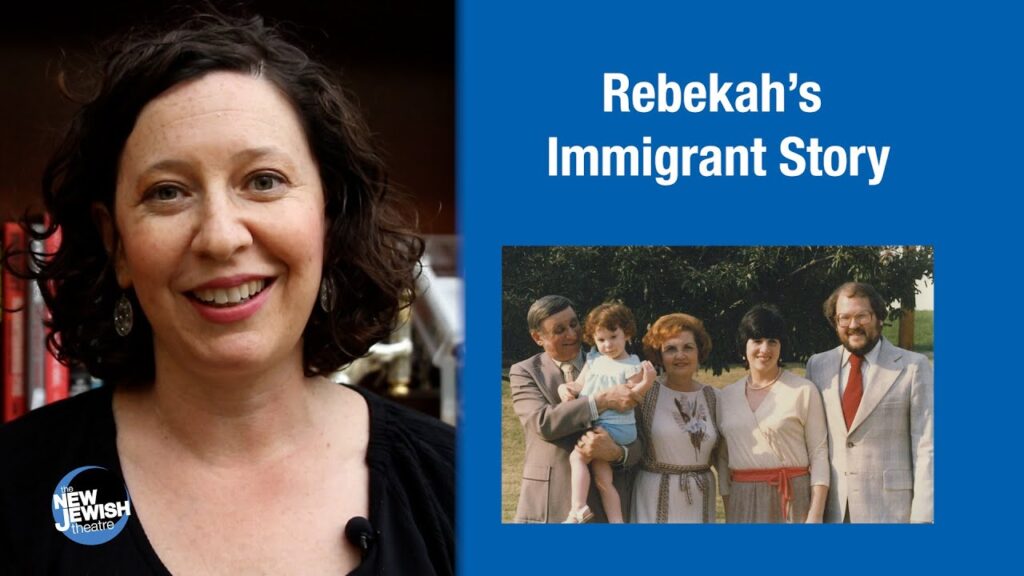
The final production of 2023, “Into the Woods” has been a passion project, and finally achieving the vision she and director Robert Quinlan had has been a satisfying end to this season.
The show is running from Nov. 30 to Dec. 17, with performances Thursdays at 7:30 p.m., Saturdays at 2 and 8 p.m., and Sundays at 2 p.m. Dec. 17 is sold-out. Link for tickets: https://www.showpass.com/into-the-woods-njt/
Scallet brought years of theater experience to NJT through her previous work as the Producing Artistic Director at the Arkansas Shakespeare Theatre, which is a professional equity summer theatre festival part of the University of Central Arkansas. During that time, she produced 32 plays and musicals and directed eight productions.
Scallet worked as the Producing Artistic Director at the University of Central Arkansas, where she also taught two to four courses per year and directed the theatre program every other year for the Department of Film, Theatre and Creative Writing.
She also spent 10 years in Chicago working as a director, dramaturg, artistic administrator and teaching artist.
As a child, she remembers visiting St. Louis and her grandparents many years ago, and saw her grandmother perform in a Yiddish play at the J.
“The J itself has also meant a lot to my family. Though I only moved to the area a couple of years ago, my family has deep St. Louis roots, and I have fond childhood memories of seeing my grandmother perform on stage here. The building and the theatre itself have changed a lot since then, but this is truly a full-circle moment for me, and I am excited to walk in my grandmother’s footsteps as I create and share stories with this community,” she said in the press release announcing her new position.
In St. Louis, Rebekah has become involved in Jewish organizations. She served on the L’Chaim Gala Planning Committee, which is the Women’s Philanthropy Division of the Jewish Federation of St. Louis, and is a member of the National Council for Jewish Women St. Louis. In Arkansas, she was involved with the Jewish Federation of Arkansas where she served as a Board of Trustee from 2012-2018 and served as Chair of the Events Division, including overseeing the 2019 Jewish Food and Cultural Festival.
She and her husband, Joe Stafford, have two sons, ages 8 and 11, and live in Brentwood, Mo.
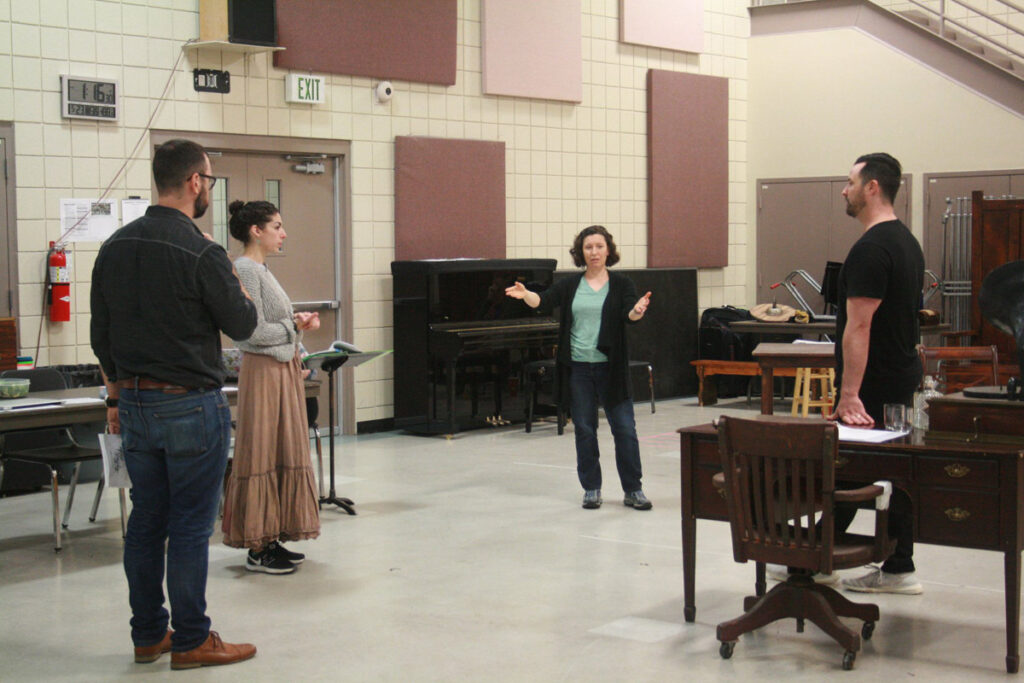
Take Ten Questions and Answers with Rebekah Scallet
1. What is special about your latest project?
“Into the Woods” is a musical that I’ve always loved, and one that I’ve been dying to produce for several years now. It was in the line-up for my cancelled summer 2020 season with Arkansas Shakespeare Theatre, and I’m so thrilled I get to finally produce now with New Jewish Theatre. And I’m even more thrilled that Robert Quinlan is directing, who had been originally slated to direct my 2020 version.
2. Why did you choose your profession/pursue the arts?
Is it too cliched to say it chose me? I have been involved in the theatre since I was little, and a director since before I knew there was such a job.
My mom likes to tell the story of watching me perform in my 4th Grade Thanksgiving play (that I also wrote). In addition to doing my own part, I was also moving the other kids around and making sure they were all standing in the right spot and doing the right thing at the right time.
As I got older and had the opportunity to work on more professional productions, I realized how powerful a tool the arts can be. In addition to just loving the work, I love the way theatre can unite a community, create empathy, encourage conversation, and open new ideas.
3. How would your friends describe you?
Warm and outgoing. A good listener. Diplomatic. And they’d probably mention my distinctive laugh. My actors always tell me they know when I’m in the audience because of my laugh.
4. How do you like to spend your spare time?
What is that, exactly? I am the mother of two boys aged 8 and 11, so my spare time is mostly spent at soccer games, piano lessons, and PTO meetings. But I also enjoy cooking, reading, and spending time walking outdoors.
5. What is your current obsession?
I’ve been working my way through reading Tana French’s “Dublin Murder Squad” book series. They are all so good and so well written, plus I love the Irish dialect. It’s even more fun in audio book form.
6. What would people be surprised to find out about you?
I grew up in Little Rock, Arkansas, and Chelsea Clinton played on my softball team.
7. Can you share one of your most defining moments in life?
Putting my hand on the Western Wall in Jerusalem when I was 16 years old. Knowing that I was touching stones that had stood in that spot for thousands of years, and that countless other Jews before me had touched those same stones and prayed as I prayed was so visceral and spiritual. I felt connected to my Jewish heritage in a way I never had before.
8. Who do you admire most?
My father, of blessed memory. He died young from cancer, when I was only 28, but he absolutely made the most of the years he had. He was a scientist with a very sharp and curious mind, and he also loved the arts and exposed me and my siblings to every artistic and literary experience possible when we were growing up. He was always true to himself and invested just as much time into his role as father as in his career. I strive to do the same with my family.
9. What is at the top of your bucket list?
I want to travel to South America – Argentina, Chile, Peru, Ecuador. There is so much rich history and culture in all of these places. I’d love to have the opportunity to explore there.
10. How were you affected by the pandemic years, and anything you would like to share about what got you through and any lesson learned during the isolation periods? Any reflections on how the arts were affected? And what it means to move forward?
As a theatre artist it was wretched – having to cancel a season of work that so much effort and creative energy had already been put into was awful. And then to stare into a future with no live theatre until who knows when was terrifying.
As it happened, at the same time, I also left my former full-time position as Artistic Director for the Arkansas Shakespeare Theatre and moved to St. Louis with my family and without a new job to go to. But in a way, this was the best thing possible for me. I was forced to slow down and admit to myself that I was burned out. I needed a reset and time with my family. And my family needed me for all the virtual school!
So, I am grateful for the forced time off, and when the opportunity arose to get back into full time theatre work, I was ready and able to come back with a better perspective on work life balance.
But I am also dismayed by the way the pandemic has decimated theatre in the U.S. Every day you hear about more theatres being forced to close and audience members not returning. It’s disheartening, but it’s also an opportunity to look at our art and see how we can maintain our roles as meaningful and vital parts of our communities. The numbers are telling us that we can’t just do what we’ve always done, which means there’s a tremendous opportunity for ingenuity in the industry.
11. What is your favorite thing to do in St. Louis?
I love to go for walks in Forest Park and wander around through the trails. Especially in summer when there are so many wildflowers in bloom everywhere – it’s magical.
12. What’s next?
For New Jewish Theatre, we finish our 2023 season with “Into the Woods,” and start 2024 with Arthur Miller’s “All My Sons.” For me personally, I’m directing “We All Fall Down,” a regional premiere by Lila Rose Kaplan for NJT. It will open at the end of May.
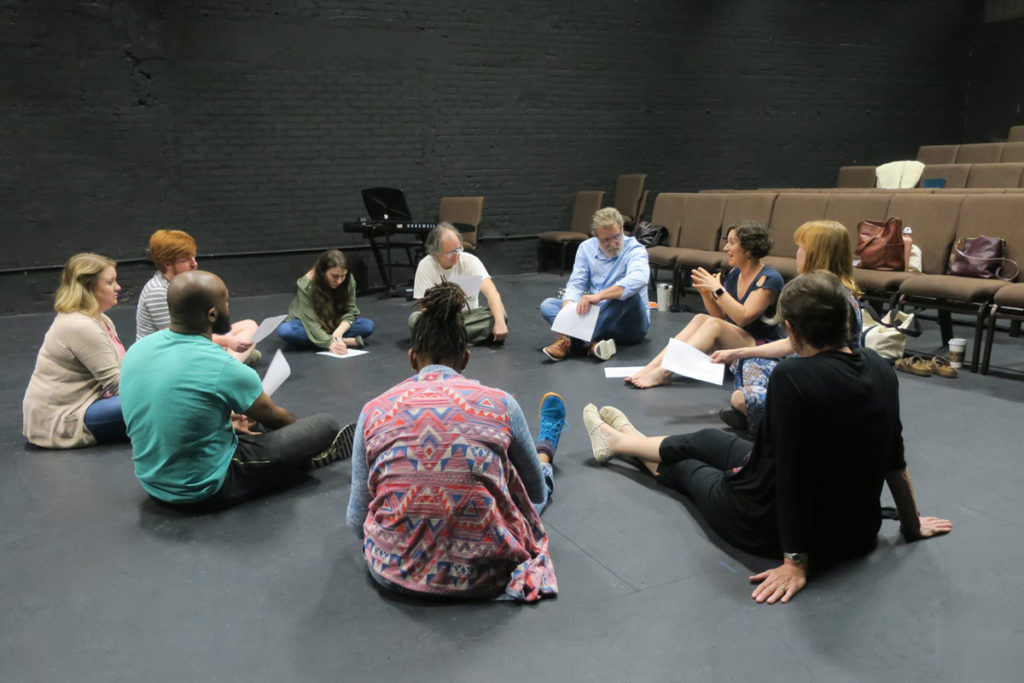
More About Rebekah Faye Scallet
Age: 45
Birthplace: Madison, Wisconsin
Current location: Brentwood, Missouri
Family: Married to Joe Stafford with 2 sons, ages 8 and 11
Education: I have a B.A. in English and American Literature from Brandeis University, and an M.F.A. in Directing from Illinois State University
Day job: Artistic Director for New Jewish Theatre
First job: Babysitting
First play you were involved in or made: But the first play was “The Hobbit” at the Arkansas Children’s Theatre – I was 12 and I ran the sound board.
Favorite jobs/roles/plays or work in your medium? I have directed Shakespeare’s “Twelfth Night” three times and worked on six different productions in various capacities. I have loved each one and would direct it again in a heartbeat. It’s an incredible play.
Dream job/opportunity: I’d love to direct Tom Stoppard’s new play “Leopoldstadt”– it’s epic and powerful
Awards/Honors/Achievements: Received the Arkansas Arts Council’s Individual Artist Fellowship for Directing
Favorite quote/words to live by: “All the world’s a stage, And all the men and women merely players; They have their exits and their entrances; And one man in his time plays many parts”
A song that makes you happy: “The 59th Street Bridge Song (Feelin’ Groovy)” by Simon & Garfunkel


Lynn (Zipfel) Venhaus has had a continuous byline in St. Louis metro region publications since 1978. She writes features and news for Belleville News-Democrat and contributes to St. Louis magazine and other publications.
She is a Rotten Tomatoes-approved film critic, currently reviews films for Webster-Kirkwood Times and KTRS Radio, covers entertainment for PopLifeSTL.com and co-hosts podcast PopLifeSTL.com…Presents.
She is a member of Critics Choice Association, where she serves on the women’s and marketing committees; Alliance of Women Film Journalists; and on the board of the St. Louis Film Critics Association. She is a founding and board member of the St. Louis Theater Circle.
She is retired from teaching journalism/media as an adjunct college instructor.



